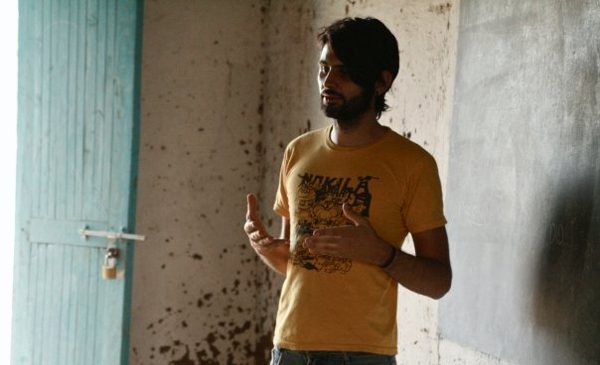An interview with Ben Murphy, who works as a Humanitarian Advocacy Officer at Oxfam Australia. Ben recently spent 2 ½ weeks in New York as part of the Oxfam advocacy team campaigning for an internationally legally binding Arms Trade Treaty. Originally posted at 3things.
1. Why did you decide to become a humanitarian campaigner and advocate?
Having spent quite a bit of time as a researcher working with refugees and other people affected by conflict in my early 20s, I became increasingly interested in humanitarian situations and emergencies, and began thinking about what I do to become more involved. A big part of it was a strong desire to learn more about human rights, international law and how to use that knowledge to influence decision makers and make positive changes – I’ve always been a pretty opinionated person so it was a fairly natural progression! I’d always had a huge interest in the developing world too, and had travelled extensively through the Middle East and Asia before I started doing humanitarian work, including a stint in the southern Philippines researching terrorist groups. So humanitarian work also appealed to my sense of adventure!
My real entry point was working as a community engagement advocate on Oxfam’s Refugee Realities in 2007. I’d always felt very strongly about refugee rights and loved outreach and interviewing people, so it was a great opportunity for me. I got to meet with refugees from all over the world – Burma, Democratic Republic of the Congo, Iraq, Sudan, Afghanistan, Somalia – and hear their amazing stories.
Since then, I’ve had great opportunities to work on heaps of other interesting areas – emergency responses in PNG, Haiti, Burma and Solomon Islands, working as a community trainer in Kenya, collaborating with other NGOs to develop practical strategies to implement the Responsibility to Protect, and leading Oxfam Australia’s work campaigning for the first international, legally binding Arms Trade Treaty at the UN, to regulate the trade in conventional weapons.
2. What advice would you give to someone wanting to have a positive impact in their community/on the world?
Trying to make positive change in the world can be frustrating at times to say the least! But my number one recommendation to people would be to keep building your knowledge base and experience as an advocate and take as many opportunities as you can to work with more experienced people. It’s really confusing and hard to know where and how you can make the most difference and have the most impact, but the more you learn and the more influential people you get to know, it becomes clearer to see who your strategic targets are and what actions you can take that will have the most impact.
The more practice you have, the more confident you will become as a writer, a speaker and a lobbyist. Politicians, bureaucrats and other influential people will be much more likely to listen to you when you can communicate articulately, clearly and with confidence. And if you really know what you’re talking about, and have the evidence and hard facts to back it up, you’ll have a much stronger case.
The most important thing for me is to remember that when you’re doing advocacy, you’re trying to influence people – influential and powerful people a lot of the time, but human beings just like yourself. Sometimes they have different opinions but you can almost always find topics you agree on, and if you take the time to understand where they’re coming from and respect their points of view in the way you communicate, you’re much more likely to be able to get your message across effectively and start to change their minds.
3. Should growing up mean letting go?
Absolutely not! I think a big part of being young is feeling that there are lots of things in the world which need changing. When I was a teenager, I didn’t know all the complexities of international law, development and international relations, but I always had a really strong feeling that some things were unjust, that I should play a role in addressing that. And I got older, obviously I learned a lot more about the root causes and issues contributing to poverty, conflict and armed violence, gender inequality and refugee flows, and the problems began to seem harder to solve.
But you’re basically faced with two choices at that point – you can become apathetic and tell yourself there’s “no point even trying” to make positive change. Or you can take a constructive attitude – realising that you may not have all the solutions, but you have limitless capacity to learn and if you stay dedicated and continue to work with likeminded people, you will help to make civil society action smarter, more effective and more influential. You might even get to do it for a living!

